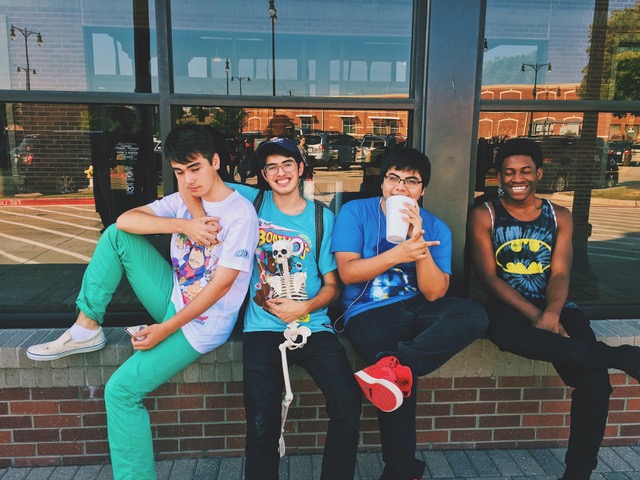My fourth child started middle school recently, and since I’ve been through this before, I had few worries and anxieties about it. I know that he’ll considerably mature socially and physically in just three years, and he’ll be challenged in ways and with interpersonal scenarios that elementary school can’t offer.
I know that middle school isn’t something to fear and lose sleep over, and watching our once dependent children morph into independent ‘tweens’ is something to embrace and be excited about. And yet….
And yet, by the second week of school, he was a sobbing mess every evening. Was he being bullied by bigger kids? Nope. Did someone in his class make fun of him in front of his peers? No. Was the switching of classes and new teachers the problem? Nope, not that either. So what was it that had this happy 11-year-old in tears?

Homework. Homework. Homework.
Now I don’t usually freak out about excessive amounts of homework, and I know that the jump to middle school also means a jump in homework, but when I sat down to see exactly what the homework was, a small jolt of shock hit me. He had assignments to complete in every subject, and with such variety, detail, and complexity, I had to do a double-take to make sure this was not homework for the sophomore class but the 6th grade.
What is beginning to happen in our middle schools has already toxically permeated our elementary and high schools. Still, middle school (not unlike the middle child) has contentedly remained ignored (and immune somewhat) to the overachievement insanity that has taken hold of the other schools.
We know that Kindergarten these days is the 2nd grade of old, where five-year-olds are showing up writing in cursive and reading Harry Potter. And if your third grader can’t recite 200 digits of Pi and name every country (and its capital) in the United Nations, they’re already behind the ball.
We know that high school academic pressures have reached dangerous levels and are sending record numbers of teenagers into depression and suffering from anxiety over the fear of failure and the inability to keep up with unattainable standards that both high school and colleges now require them.
The problem is spilling over onto college campuses — whose mental health centers are so inundated with students that many are developing new interventions and training solely for their freshmen, who are coming to college already burned out just from high school.
And now this insanity has reached middle school, where once joyful fifth-graders who loved to learn are not only walking into a brand new “social” environment they have to navigate, they’re being told on day one that if they’re not serious and 100% adequately prepared for high school (which we now plan on banging into their heads daily during grades 6-8) well. They can forget about college, which means they’ll never reach any level of success whatsoever because college is the only path to success.
And now, evidently, that path starts in 6th grade, where the option to enroll in high school classes even exists. STOP. PLEASE STOP.
In the 6th grade, I was still dressing up Barbie dolls and playing Clue all night with my girlfriends at sleepovers. I was reading Judy Blume books and worried about my lack of bra size and when my period would start, not reading Margaret Atwood and analyzing feminist literary theories so I could have a heads up on my AP Lit class in a few years. (Probably freshman year, because if you’re not in AP classes in the 9th grade, I mean, drop out of high school already.)
I fear this trickle-down effect (or up, as is the case with Kindergarten) of increased academic pressures at such young and impressionable ages and grades does little to foster a desire for lifelong learning; it reverses it. We think we’ve been doing the smart thing by slowly nudging our children for years to be brighter and smarter at younger and younger ages. We’ve created a generation of students who are so stressed out that they’re experiencing delayed maturation and unable to function and do even the simplest of “adulting” tasks when they reach college.
And why is that? Their carefree childhood is essentially stopping at middle school. With it, so are several years worth of childhood experiences that collectively mold and shape children into mentally healthy and functioning young adults.
In an attempt to make them brilliant superhuman adults, we’re asking them to do superhuman things at ages where they’re not capable of doing it. And to add insult to the ridiculousness of molecular biology in the 6th grade is the fact we’re also crushing their spirit in the process.
It’s not in any way, shape, or form normal for 11-year-old 6th graders to cry for two hours on a weeknight over homework. Let me repeat that, IT IS NOT NORMAL.
I’m not sure what effect this will have. Well, let me take that back. I know exactly what the impact this will have — Google “college mental health centers” in the “news” category. There are your effects. Scary, isn’t it?
You Might Also Want to Read:









